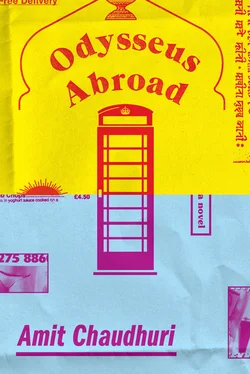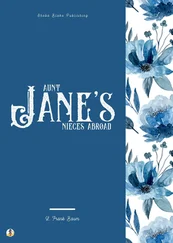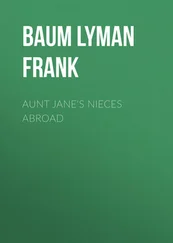“What happened?”
“Nothing. What could happen? I pretended not to see. She finished and left.”
Ananda had then taken the opportunity to bring to light a question that had troubled him, though why he thought his uncle would know the answer wasn’t clear — for some reason, he believed his uncle carried within him some intractable wisdom distilled by his asociability: so he’d put to him—“What’s important to women — love or sex?”
“Sex,” his uncle had said, taking no special pleasure in the reply, just acknowledging a fact.
Both, heads bowed, had allowed a moment to pass as Ananda absorbed the impact of the news. For such plain-speaking, Ananda knew (from his background reading on The Waste Land ) that Tiresias, who’d experienced what it meant to be both man and woman (“old man with wrinkled dugs”), had been struck blind by the vindictive Hera.
In his first year in London, Ananda had had to hear about Gilberta repeatedly. His uncle wasn’t over her. He spoke at length, now praising her, now offering his summations and suspicions, weighing her gestures and the inadvertent eye-contact between them, the banter she engaged in with Paul Middleton. Much had passed over his heart. Ananda marvelled, and quietly fulminated, that his uncle should make so much out of so little. For his uncle and Gilberta hardly knew each other outside their inane day-to-day encounters. To her, he was another man in the office. Mr. Nandy. Or maybe she didn’t know his name. Why then was he moaning (to use the very English term his uncle used to put down Ananda with when he spoke plaintively of home)? Then again, how necessary was contact? Dante had met Beatrice twice. Not met — maybe just seen . A total of fifteen minutes…And what about Meera bai, who’d dumped her husband, the king, for her “lord” and lover, the flute-playing Krishna? What of those songs and poems coming out of — not contact, let alone consummation, but wish-fulfilment and fantasy? Was it some sort of pathetic fallacy, to presume that lives were animated by love when they were actually quickened by the imagination? How many people were there today who loved quietly without hope of consummation: to whom conventional sexual fulfilment was unimportant? You might not be aware of them, but they probably wrote the love poems. (Larkin sprang to mind: curmudgeonly bachelor.)
Ananda wondered if his uncle was still susceptible to Gilberta. Why was he humming the maudlin tune?
“Really?” His uncle was stung at the implication that he’d been singing it too frequently. Ananda resented that his uncle often tried to subtly undermine him (dismissive as he was of modernism and slyly sceptical of Ananda’s mission as a poet), but his uncle probably felt the same way about Ananda — that his nephew deflated him at crucial moments. He persisted: “But what do you think of the song?”—for Tagore’s reputation, on all fronts, must be jealously overseen.
“Maybe not quite my cup of tea,” said Ananda.
On cue, the waitress came with a pot of tea and cups and saucers on a tray, as well as the muffin his uncle had insisted on ordering for Ananda. “Here we are,” she said (she was middle-class and cheerily aloof), “Thank you!” A stream of Thank yous followed — dutiful, upbeat, insincere, grateful — each time something was unloaded off the tray.
Both of them — but his uncle in particular — were feeling a bit out of place. It was clear that his uncle wished they were in one of those self-service tea shops. The sort with rum baba and trays on top of each other. His uncle didn’t know how to whisper, and he said in Bengali: “There are places I know where you can get a cup of tea and an excellent cheesecake for half the price.”
Did he not feel a sense of belonging any more in this area? Though his uncle used to despise his bhadralok contemporaries in Belsize Park, they’d at least been there, earlier, to despise and avoid. They were long vanished, to Stoke Newington or Pinner. Those people, fifteen years in the London boroughs, had grown-up children now, who — because their parents had saved on heating and electricity — had gone to the best private schools and were presently either at university or starting to look for jobs. Only his uncle had stayed on, in “Hampstead,” rejecting the suburbs and the married life and family that inevitably accompanied them — the Shah his interlocutor. Ananda sensed his uncle’s grumbling ennui as he poured tea into the cup. From the pane on Ananda’s right, they gazed at where the hill leading to the Heath descended and made a trough with the bottom of Pond Street, and, lit by the sun, displayed a junction with a zebra crossing and a bus stop.
“Pupu,” said his uncle, “have the muffin.” His tone bordered on hectoring. “It’s very good,” he claimed, without having tasted it. “We mustn’t waste it.” That was the reason for the advocacy: it was an expensive muffin. Ananda resisted the urge to say, I never wanted it , and replied, “You have it.” Because he knew this was why his uncle had ordered it — he was hungry. He hadn’t had anything after all that sugar at breakfast. (Here, he’d only put four cubes in his cup and stirred it slowly.) His uncle said, “Tumi khao.” “No, I won’t, really — you go ahead,” said Ananda. His uncle regarded the muffin with dislike (for being undemocratically overpriced). Then he picked it up and took a huge mouthful, his eyelids drooping, his throat rippling, as he swallowed — till he could breathe again, and utter the verdict: “Very good…” His whole body was curiously relaxed.
“Keats used to live here,” said his uncle.
Foxes, Glenda Jackson — and Keats. Hampstead. Rangamama too, in a manner of speaking. But was Belsize Park truly Hampstead?
“Mukherjee used to say to me—‘ Moshai , have you seen Keats’s house?’ I was never interested in Keats’s house.” Confessed to matter-of-factly, as he devoured the muffin. Still, he mentioned Keats no doubt because his nephew was “reading” English literature; although his equivocations and qualifications about this were a reminder coming from sideways about whether or not English literature was a subject worth studying. But Keats was useful to establishing the brilliance of this address — its ineffable pedigree. Mukherjee must be a bit of an English lit aficionado. A bachelor, and for two years Ananda’s uncle’s other neighbour in the basement. Ananda had never seen him. Yet he was always speaking to his uncle, this man, about facets of English culture.
“Hm,” said Ananda. His uncle always provided such a steady stream of opinion that he seldom felt like voicing his own: but he harboured views on everything.
Oddly, he wasn’t touched by Keats. The poetry, that is. Maybe because he’d had to study “Ode to a Nightingale” in school, and, precocious and ignorant, glutted himself on the young poet’s over-rich vocabulary, on mouthfuls of phrases such as “blushful Hippocrene.” Already a poet in his own eyes, Ananda, at fifteen, had judged Keats by the standards of his own subjectivity, and found him a little — bland. Keats was too perfect. Ananda had never recovered from that first encounter — poet to poet, young adult to young man. He looked semi-sensitively around him through the glass pane, to guess at where Keats might have been or still be. He’d written of summer only in passing, in the short-breathed “Grasshopper and the Cricket.” Outside, the day was golden. Busy. The Odeon might have disappeared, but cars were going up all the time past the Royal Free Hospital. Ananda was unreceptive to the poetry — but he was moved by the man. He could see him, almost. Good-looking, terribly short. Possibly because of the early privations and illnesses. He did not grow. He did not grow old in a number of ways. A man-boy.
Читать дальше











